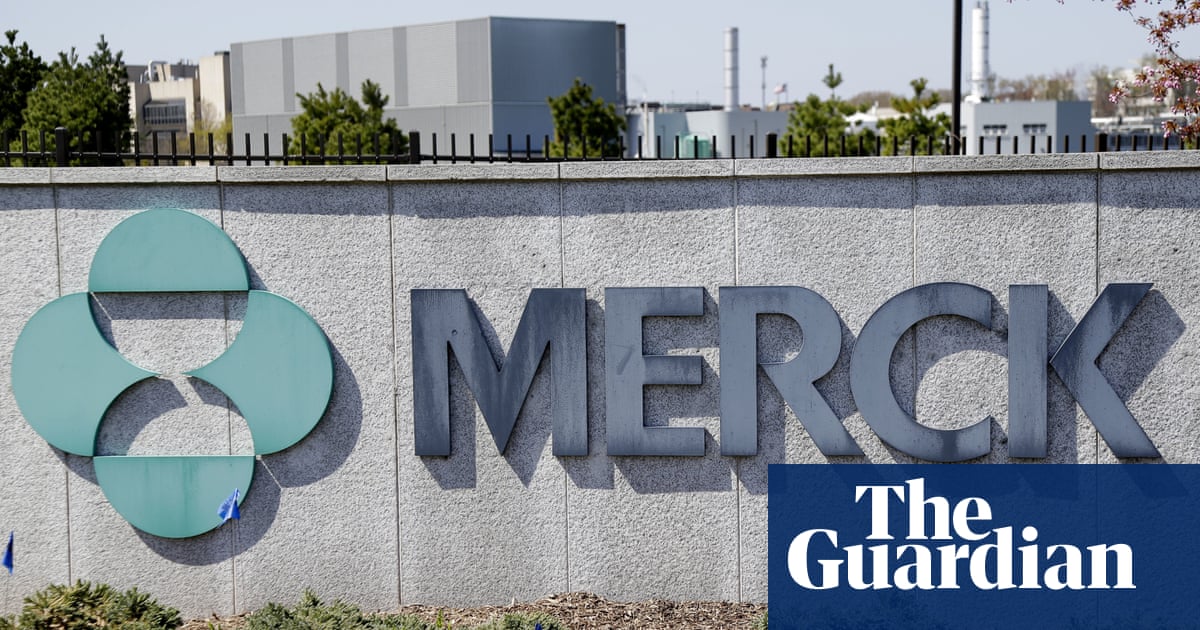The US pharmaceutical company Merck has said it expects to pay an extra $200m (£150m) in costs this year from tariffs thatDonald Trumphas already imposed, including his 10% tax on imports from around the world.
Merck said the projected costs also included retaliatory tariffs imposed by foreign governments on the US, particularly those related to China.
However, the projections do not account for threatened “major” tariffs that could be imposed just on pharmaceutical imports. The Trump administration opened a21-day national security investigationinto the industry earlier this month, seen as a first step to the imposition of levies in the coming weeks.
The US president has promised to repatriate jobs and taxes he believes the pharma companies are dodging by manufacturing drugs consumed in the US elsewhere in the world including Ireland, where Merck has a base, which he has singled out for criticism.
The Swiss company Roche said on Thursday it was petitioning Washington directly for exemption from tariffs, arguing it shipped as much to the US as it exported from its manufacturing bases in the US.
Earlier this week it signalled a further commitment to the US, announcing plans toinvest $50bn there.
In an earnings call on Thursday, Roche’s chief executive, Thomas Schinecker, said the company was going through volatile times but was well positioned.
He said four of its medicines accounted for 92% of Roche’s “potential tariff exposure” and that production of three of them had already been moved to the US. Declining to name the drugs, he added that the company had begun the lengthy and highly regulated procedures for setting up US production sites.
Schinecker said indiscriminate tariffs did not take into account the sizeable manufacturing base Roche already had in the US and the complexity of the drugs it manufactured. “For diagnostics, when you have 10,000 products, you cannot produce 10,000 products in every country.”
He said the company’s drug exports from its US plants were a key industry that was vulnerable to being hit by retaliatory tariffs.
Switzerland could face 31% US tariffs, which Trump put on hold for 90 days earlier this month along with sweeping tariffs on almost all goods from dozens of other countries.
Sign up toBusiness Today
Get set for the working day – we'll point you to all the business news and analysis you need every morning
after newsletter promotion
Pharmaceuticals are rated at a zero tariff around the world under a 1995 World Trade Organization agreement aimed at making medicines more accessible.
Schinecker said Roche was in touch with various levels of Trump’s administration, arguing that a US drive for all goods used in the country to be produced there would inflate manufacturing costs.
On Thursday, the company confirmed its full-year financial guidance and reported a forecast-beating 7% rise in first-quarter sales, driven by the breast cancer drug Phesgo, the eye drug Vabysmo and the allergy treatment Xolair.
Trump earlier this month reiterated plans for a “major” tariff on pharmaceutical imports, threatening an interwoven global supply chain and weighing on shares across the drug industry.
